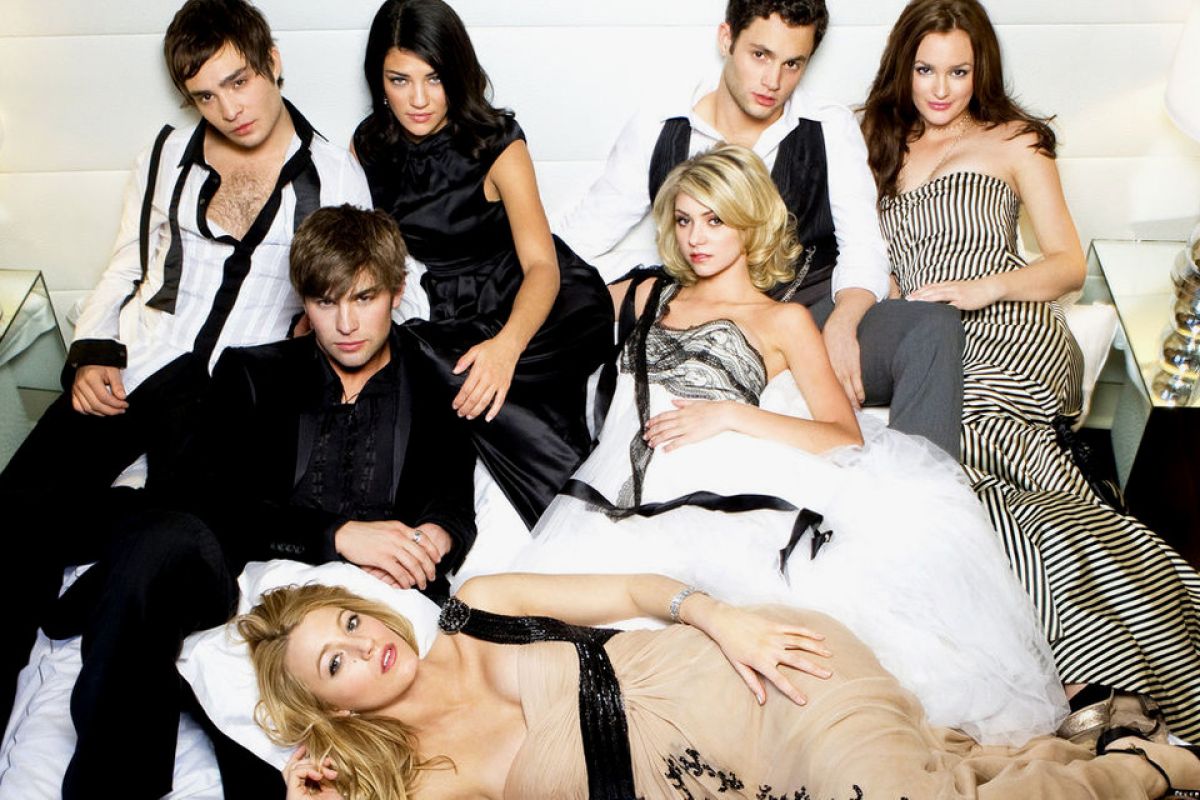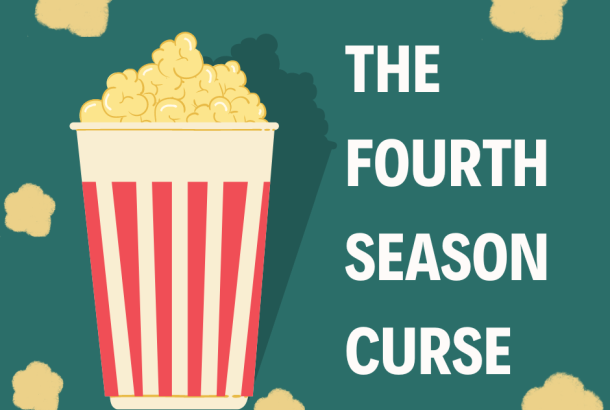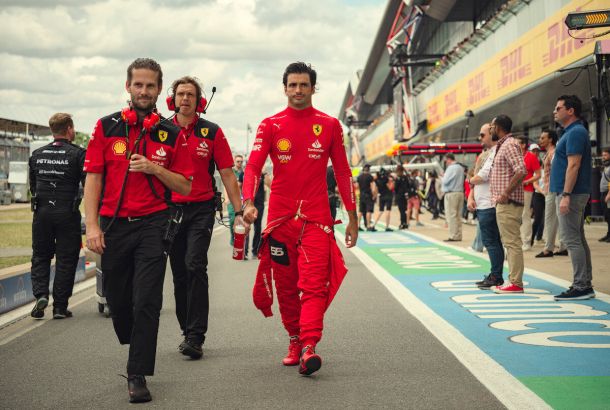Satirically stylish: A Gossip Girl retrospective
By Cara Barclay

TRIGGER WARNING: Brief discussion of sexual violence, if you have been affected contact Report and Support: www.reportandsupport.manchester.ac.uk
It’s been 15 years since Manhattan’s elite first graced our televisions. Gossip Girl (2007-2012) followed the privileged lives of teenage socialites and Ivy League legacies. An exhibition of the most enviable, lavish lifestyle, the latest high fashion appeared on the show quicker than in Vogue. We were invited to elegant parties filled with celebrities, toured penthouses overlooking Central Park, and visits to The Hamptons on holidays with the protagonists.
Alongside the designer bags, private jets, and diamonds, a materialistic and superficial world unravelled. As a long-term fan of the show, I suggest rewatching it through a new perspective: as a satire on class politics.
Once the ridiculously expensive haute couture clothes emerged in Gossip Girl at a fashion show, the audience fell victim to the charm of the overly opulent lifestyle sparkling on our screens. We became consumers of this grandiose way of life that most people are so far removed from. Marx would certainly be appalled at this commodity fetishism continuously spotlighted through the show’s romanticised notion of capital.
An adaptation of Cecily von Ziegesar’s 2002 book of the same title, Gossip Girl is an anonymous blogger who exposes the manipulative world of the Upper East Side. The story followed the privileged lives of Gossip Girl’s muses: IT girl Serena van der Woodsen (Blake Lively), her competitive best friend Blair Waldorf (Leighton Meester), the self-hating Chuck Bass who never experienced love as a child (Ed Westwick), and “Golden Boy” Nate Archibald (Chace Crawford).
On the other side of the bridge, lives “Lonely Boy” Dan Humphrey (Penn Badgley) and his sister Jenny (Taylor Momsen). They were the punchline of classist jokes, despite going to the same private school with the elite and living in a million-dollar loft. While to the average viewer the Humphreys represent the top one per-cent, from the old-money protagonists’ perspective, they are impoverished.
The taunting they face is a satire on the ignorance of those born into such opulence, as well as a dangerously misguided perception over the average New Yorker’s financial status. The Brooklynites’ hamartia is simply not allowing their lack of economic and social capital to stop them, though. Although they are soon vilified because their outsider position represents a threat to the inherited status and wealth of their rich counterparts, it’s soon revealed that whereas money cannot buy everything, talent and hard work pay off.
Sadly, as Dan and Jenny are slowly becoming insiders themselves (mainly by dating Manhattan royalties), we witnessed their toxic character development. Through blackmailing, stealing, lying, and scheming, the Humphreys destroy their closest relationships and inadvertently conform to the morals and shallow values held by their wealthy rivals, thus becoming completely and tragically unrecognisable themselves.
As I recently rewatched the show, I found that I no longer held any resentment towards these characters. In fact, upon realising that they’re very much relatable to teenagers (longing for acceptance, belonging, and respect from peers), I empathised with them.
More recently, Gossip Girl has been deemed as “outdated” and accused of overlooking and romanticising highly problematic actions and behaviour.
First of all, Gossip Girl catalyses (often dirty) money into scheming that is imperative in maintaining high status and the love lives of the morally deprived characters. It’s unavoidable to watch it through the eyes of people who always come out on top, no matter whom they exploit: and yet, upon glimpsing these affluent perks, an indifference arises to the exploitation and manipulation behind their excessive wealth.
The show never sugarcoated how awfully ignorant the characters are on real-life issues beyond the boundaries of Central Park and Fifth Avenue. On the contrary, it pushes outrageous one-liners in our faces. The most unapologetically appalling ones are delivered by Blair, who shamelessly declares that “there’s nothing I love more than the sound of a sweatshop in the morning”. This theatrically classist statement possesses undertones of a critique on the fashion industry.
Specifically, the detached relations between major brands and exploited workers. In the process of Blair mocking serious issues, she reveals the ignorance of her entire social class. Her exaggerated traits – spoilt, vain, acquisitive – are a novelty. She’s so far removed from reality, like anyone who’s born into such luxury, that she becomes fairy tale-like escapism to the average viewer; a glimpse into a life most will never experience.
Another, much more pressing, controversy of Gossip Girl is how the young Chuck’s attempted rape, eventual statutory rape, and physical abuse are glossed over. The audience is deviated from Chuck’s actions through redemption arcs that are bulldozed in our faces: he becomes compassionate, regretful, and even physically cleans up to appear less sleazy. Although Chuck was my teenage crush, I’ve naturally revised my image of him upon rewatching the show after all these years.
Much like Blair’s melodramatic temperament, his wealth provides excellent material to entertain us. After all, some of the best entertainment stems from characters we love to hate. Nevertheless, the swiftness of how everyone forgives and forgets in this story (including the audience) is alarming.
Men like Chuck exist in Hollywood and politics. Attractive, charismatic, men in the public eye merely need to appeal to the public’s sense of nostalgia and patriotism to be widely endorsed. They serve as current and historical reminders of the correlation between wealth and a prosperous reputation.
The legacy of the #MeToo Movement is evidence of that: actors who were accused of sexual assault several years ago still unsettle our screens. Gossip Girl devoured our attention as impressionable teenagers, and spat us out as cynical, self-aware adults. Upon conflict, we became complacent to their corrupt morals, unintentionally siding with the Upper East Siders, over those who are perceived as working class. Through satire that mocks the rich alongside sinister characterisations that parallel reality, Gossip Girl accurately paints a disturbingly honest picture of a deeply embedded classism and misogyny that many are guilty of.
Gossip Girl should be enjoyed as an entertaining modern-day fairy tale. I encourage every core fan to revisit the show with a fresh mind and to watch it more critically. Gossip Girl has its perks, such as round characters, and its mistakes (e.g. actions with no consequences). The show has been recently renewed for a reboot and HBO has already produced two new seasons (2021-2022), which is a clear indication that people still want to buy into the escapism and fake reality.
XOXO
Gossip Girl (2007-2012) is available to watch on BBC iPlayer.







